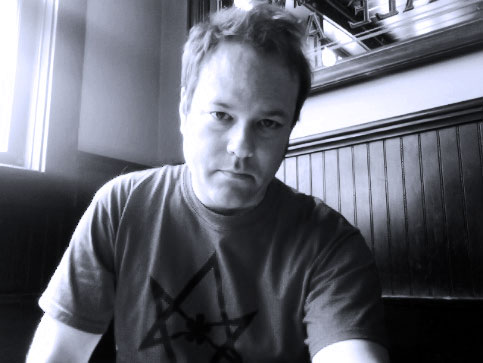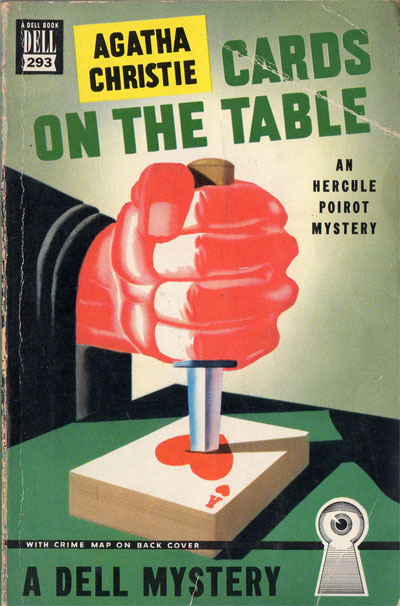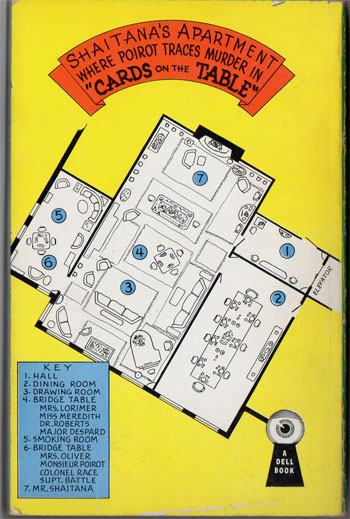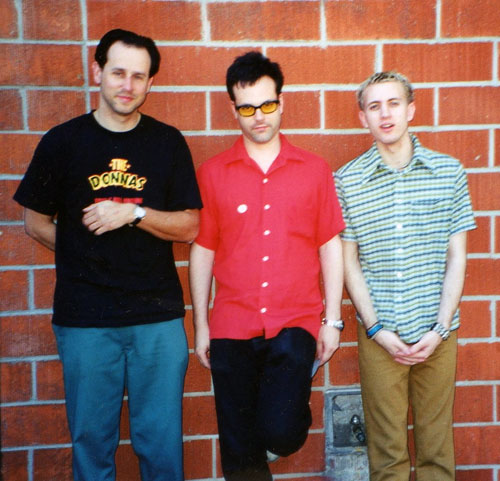June 30, 2011
Different Class
Jook was a great, often overlooked skinhead-glam-mod-rudi band from the early 70s that I know from some of the singles from this album originally on (I think) Chiswick Records.
June 26, 2011
Last Night I was a Judge at an Air Guitar Competition

I'd been asked to do it quite some time ago and didn't really think too much about it till I showed up an hour before the show, not knowing at all what I was walking into and figuring I'd just wing it. (My usual plan. Winging it, I mean.) What I walked into turned out to be a kind of parallel world, a counter-earth populated by people whose lives appear to revolve around air guitar and the air guitar subculture, for whom actual guitar-playing is a mere meta-reference point. I mean, I know they do other things too, but last night, it was all about the air. And sure, there's irony in there somewhere, but part of what gives it such a kick and makes it such an interesting world to look into is the earnestness with which the irony is expressed, and I must presume, experienced. These people are committed to their subculture, which has a surprising (to me as an ingenue) breadth and depth, with its own vocabulary, customs, heroes, and villains, and true fans who are as committed as the performers. Overall, I would describe their demeanor as a deadpan glorying in absurdity. They take it seriously, or maybe it's more like they take taking it seriously seriously, and that, for me, is what elevates it to something beyond what I expected it to be, something vaguely like art. Well, it is performance art, obviously.
Jeez, I was thinking, someone should make a movie about this, the subculture, the bizarre cast of characters, the philosophy, the whole strange world. A kind of King of Kong thing. When I mentioned that to one of my fellow judges, as though I had just come up with this great, shockingly original idea, he just looked at me pityingly, because, course, someone had already done it
. (Trailer here.) And moreover, this guy, the judge, known as Bjorn Turoque, was one of the stars of it. The third judge, C-Diddy, was the other star of the movie. Both these guys are worshipped like gods by the air people. Oops. I should have done my homework, like I always say, as a gigantic imaginary drawer full of notes-to-self gathered over the years can attest.
But these guys were friendly and took me under their wing, showed me the ropes, tried to steer me away from breaches of air etiquette. I don't think I ever quite grasped the concept of "airness" in all its nuance and complexity, but I sure wish I had a recording of the various times someone tried to explain it to me. I remember Hot Lixx Hulahan, the master of "air-emonies" and the guy who invited me to judge, giving me a particularly cogent definition of "airness," but the details now elude me, as ineffable as the thing described, I suppose. Also, I was a little loaded.
I wasn't too popular as a judge. I got heckled a bit, and a group of fans who didn't like some of my scores and commentary tagged me with the epithet Worst Judge Ever, and it stuck. I don't mind too much, though, because, I mean, why would I, and second of all, heckling the judges seems to be part of the program. Even Bjorn Turoque got ice thrown at him, though I can't remember what for. I was told afterwards by some air guitar fanatics at the bar across the street that I had been a lot nicer than Jello Biafra was a couple years back.
The whole thing was a lot of fun, and I had a great time. I'd totally do it again.
(The picture is of the finale, where all contestants and much of the audience joined onstage to "do" Freebird. It reminded me of Isocracy in a way.)
June 25, 2011
Aircraft
My BMI statement for this quarter reported broadcast/publishing royalties in a category I'd never seen before: AIRCRAFT. Evidently (or not, because it certainly could be a reporting glitch) the song "She's Not a Flower" from Yesterday Rules was "performed" or made use of some thirty-six times in some capacity on Airtrain, Continental, ExpressJet, Frontier, and Jetblue. The going rate for this kind of play works out to be a bit under a cent apiece. But it's thirty cents I didn't have before, and it's theoretically better than a kick in the teeth, so I'm not complaining.
I don't know if this is a new category, or if I've just never noticed it before, or if I've just never turned up on it before. Much as I enjoy the idea of defenseless travelers being subjected to that song against their will, I guess it's more likely to be the result of the song shuffling on some kind of "alternative" channel on the music you can listen to on headphones during a flight.
Anyway it made me laugh a little, but it also made me think about how much BMI statements (and presumably the underlying finances of broadcast music publishing they ultimately reflect) have changed in recent years. Once upon a time, a multi-page statement that arrived in a big manila envelope rather than a small folded-over one would spark a sense of excitement, relief, and anticipation, as it meant that there had been a lot of activity that quarter and the check was likely to be larger than usual. It still does mean that, with regard to the activity, but in keeping with the general trend of this digital age, it is largely micro-payments, barely perceptible individually and with modest totals, and the checks, relative to the number of items listed anyway, have shrunk. You'll have pages and pages of logged "performances" from "background music services" or "aircraft" or "internet," a meticulous record of how much you're being paid for how many uses of each song. These rates are mindbogglingly infinitesimal. Example: this statement logs 285 full-feature generic "internet" uses of "Even Hitler Had a Girlfriend" in the quarter, for a total of $0.05.
Even compensation for use by traditional media seems to have been greatly undercut and devalued, again in keeping with the general cross-cultural trend. It used to be that turning up in a commercial radio log could mean a significant amount of money, because the logs were extrapolated and proportionally distributed. I'm sure it reflects greater accuracy in reporting and logging, which is all to the good of course, but judging from this statement, turning up on a commercial radio log isn't quite as much like winning the lottery as it used to be, or rather, it's like winning a lottery with a tiny jackpot ($1.27 in this case.) The main value of it is in getting a kick out of the notion that, theoretically, somewhere, commercial radio listeners got subjected to "Now that You are Gone." I'll take it, and the $1.27, but some part of me is left wishing, not just for my own sake but for that of all writers and for the sake of music in general, that songs were worth maybe just a little bit more in this vast media market. But, they're not.
June 24, 2011
June 23, 2011
With friends like these...
I know they're just promoting their book the best they can, but this breezy "how to write YA" article in Slate still irritates. The tone and attitude reminds me of many conversations I've had with "literary" writers, in which they dispense wisdom on how much easier it must be to write "a YA" and how it must be nice not to have to worry so much about the writing.
"I've been meaning to do one," one writer of "literary" fiction once told me, when the subject of YA novels came up. "Just for a break, something easy for a change. Get in on some of that Twilight money, too, am I right?"
"Yes," I replied. "You should totally do one. In fact, in the YA world, we have an in-house term for teen fiction: EASY MONEY." Then I added that any writing is hard, to which her response was to try as hard as she could to resist patting me on the head.
I mean, the whole conversation was breezy and jokey and good-natured just like the Slate article. The "we're only in it for the money" bravado is a form of self-deprecation at bottom (Frank Zappa didn't mean it either, really.) However, the notion that their teen fiction is dumbed down, simpler, less complex, and less "real" than their other work appears to be quite genuine. And it may well be true. In fact, it probably will prove to be true, in a self-fulfilling prophecy kind of way, because it's just not an attitude or an approach that is likely to yield a great book. If you're going to spend all that time and self-torture writing a novel (and don't kid yourself, it takes both, even to write an EASY MONEY novel) you'd better be prepared, at least, to mean it. If you don't, it's hard to imagine anyone wanting to spend the time and torture it will take to read it. You've got to respect your readers if you want them to care.
As for these ladies, I'm not saying they do or they don't. They're winking, joking, self-deprecating adults talking among themselves. This commentary is not intended for their readers, who are curiously left out of the loop in so much writing about the writing when it comes to teen fiction. I'm sure they put lots of work into making their book the best book it could be, and it may well be great. But speaking of, does this sound like something you'd like to read:
Writing Y.A. as an adult is a chance to rewrite being a teenager. Our series […] is, in some ways, the high-school experience we never had, where everyone is witty and good-looking and their problems are more like, "My evil grandmother is torturing my dead mom's soul!" rather than, "I have a lot of zits." It's an opportunity to relive high school in a more perfect manner. Who doesn't want to be 16 and living in a mansion? And hooking up with the hot guy? And having super hoodoo powers? It's totally normal.I wish them well, of course. (And I really hope no one starts an earnest #YA-readers-do-too-care-about-rumination campaign on twitter. I mean, sometimes they do and sometimes they don't, just like people do with your grown-up books.)
correction: I assumed both authors were women, but it turns out one is a dude.
They're taking quite a drubbing in the Slate comments, to my slight surprise.
June 22, 2011
I Knew Sky
I was listening this today and it reminded me of this great tune:
It appears the record that's from (the Dig that Crazy Grave EP from Irish psych-garage rock combo The Golden Horde) is no longer available anywhere for love nor money, which is too bad, since the one I used to have seems to have wandered off at some point in the last twenty-five years.
(I like the classic MRR review from Tim Yohannan on the bottom of this page devoted to the record, where he describes it as "boppin' folkish rock." I often used to shake my head at Tim's cockamamie music descriptions and wonder what planet he was living on. But looking at it now, I wonder if this wasn't at least partly a bit of calculated misdirection, damning with faint praise in order to minimize the chances that any misguided, insufficiently movement-committed readers might be tempted to stray too far from the neighborhood between Bad Religion Ave. and MDC Court. It'd be like your dad bounding in and saying: "say, kids! Who's up for some boppin' folkish rock? Anyone feel in the mood for boppin' folkish rock? Boppin' folkish rock? No? All right then. Toxic Reasons it is!" You know what I mean? Reverse psychology. Dads do it.)
Speaking of nutty ideas, once upon a time Kevin Army and I got it into our heads to try to track down Sky Saxon and corral him into doing a cameo on one of our records. (I can't remember which one.) There was a stretch of time where there were numerous Sky Saxon sightings in and around Broadway and Columbus in San Francisco, but he always managed to elude us. If I remember correctly we were planning to offer him dinner and fifty bucks. And don't laugh, that was probably most of the total recording budget. Maybe that wouldn't have been enough. We'll never know now.
June 20, 2011
What Else I Used to Look Like

My best guess is I was trying to play "Sway" or possibly "Roland the Headless Thompson Gunner."
Trivial Info, Paraphernalia, Badges, and Regalia
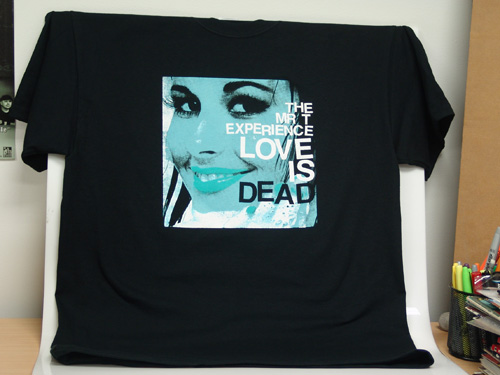
Interpunk is doing a couple of MTX shirts. It has been quite a while since any shirts have been available commercially, so this is, by any conceivable measure, a big, big deal.
We tried making Love is Dead shirts once before. They were supposed to be the tour shirt for the ill-fated Euro-tour with Green Day in 1996, the sole piece of merchandise we were allowed to sell at the merch stands. As it happened though, there was a two-week delay in the delivery of the shirts. And as it also happened, the tour was cancelled after just about exactly two weeks of shows. The result was that these shirts were only available for sale to the public on a single night, in Berlin, on what turned out to be the final date of the tour.
If I remember this correctly, we sold exactly three of them that night. And what's more, we met all three purchasers, three German girls, the next day when we were scrambling around the streets of Berlin looking for our equipment. They were nice. The rest of those shirts had to be destroyed because we couldn't afford to pay to have them shipped back.
Anyway, now they're back baby.
They're also doing a variation on the semi-classic MTX Songs about Girls design, white on red with black lettering underneath.
Check 'em out and buy some. If they do well, we may be able to do an additional design or two.
Makin' Love
The single sold for $6,500 on ebay just now, but it can be found for a bit less on Back From the Grave, Part 2.
June 18, 2011
Good Times
I always wanted to cover this song, but for some reason that is completely dark to me there was a distinct lack of enthusiasm for this dream among band members across several line-ups. And you need enthusiasm. (I know it from Highs in the Mid-Sixties Volume 11, which is pretty impossible to find these days, but Amazon has an mp3.)
June 16, 2011
Where Will We Be Next Year?
Steve tagged me on the trivia question "what was Mr. Belvedere's full name" because one of my songs references the TV show. I hadn't done a whole lot of thinking about Mr. Belvedere in quite some time, and I don't know all that much about the TV program, but I did know the answer (Lynn Aloysius Belvedere) because I'd read the book and it stuck with me.
The book's called Belvedere, and it's by Gwen Davenport. Most people, I reckon, don't even realize this show was based on a book. I'm not a huge fan of the TV show, but the book is really pretty great. The book's Mr. Belvedere, like the TV Mr. Belvedere but a lot nastier, more arrogant, and more obnoxious, is a novelist who goes undercover as a babysitter to gain first hand experience for a novel he is planning to write, meant as an indictment of the modern world and its gossiping, petty-minded, degenerate inhabitants. Slight vestiges of this less kind, less gentle, more misanthropic Mr. Belvedere can be found in the portrayal by TV's Christopher Hewett, but he's really a shadow of his former self. Anyway, hijinks, as you might imagine, ensue. It echoes Wodehouse and I've also always wondered whether it might not even have influenced A Confederacy of Dunces: the two books are quite similar thematically and stylistically.
They made a few Mr. Belvedere movies in the late 40s, and they're a lot of fun too. Here's a clip from Mr. Belvedere Goes to College that should give you the general idea:
All this Belvedere-ing made me want to track down a copy, as it's been ages since I've read it, and I got frightened by the $400 copy listed on Amazon. Abe Books to the rescue.
Finally, I got a kick out of the fact that Mr. Belvedere (the TV show, along with Jeeves & Wooster, Family Affair, and Magnum PI) is profiled on the website of the Junior Ganymede Club Butlers Guild.
New York Groove
These guys recorded quite a few pretty great glam pop tunes, of which this is the most famous. Just thinking about it because of digging up that Ace Frehley record
the other day. Speaking of which, you know whats a great pop song? This:
June 15, 2011
Sad Ace
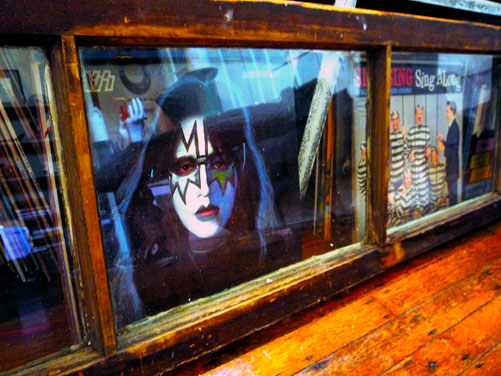
I originally just called this "Ace" but it has a melancholy quality that made me want to change the title, so I did.
June 14, 2011
Doing My Part to Keep this Alive for Just a Little While Longer so I Will Feel Like My Work is Dangerous and Relevant to Something or Somebody
Metafilter has a thread on the Wall Street Journal piece on how awful YA lit is.
June 13, 2011
Gary Gilmore's Eyes and Me
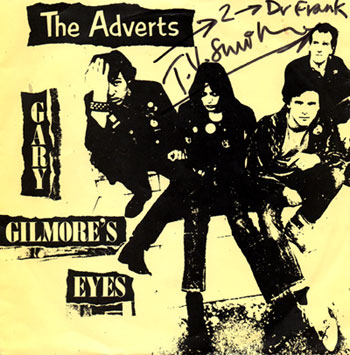
Speaking of "Gary Gilmore's Eyes" (as I just was, down there) there were few songs that had as much purchase on my attention in those days as that one did. I mean, it really "spoke to me," somehow, and I spent lots and lots of time thinking about it. I had it on a tape I recorded from the radio, but I was really excited when I ran across an actual copy of the single, and I've hoarded and cherished it ever since. (Nowadays, when you want something like that you just look it up and paypal whoever has it whatever it is he wants for it, but back then acquiring such things was more like a random act of fate that just happened to you.)
How could a song like that, about the (allegedly true) story of a man who wakes up in a hospital bed after eye surgery and realizes to his horror that his corneas have been replaced by the donated ones of an infamous, firing squad-ed, murderer whom Norman Mailer wrote a book about -- how could such a song "speak to" a thirteen year old suburban kid?
Thinking about it now, I believe it's not what it's about that was important, but rather, it's what it does. What I mean is, it's a song that takes an unusual, rather far-fetched, unlikely conceit, and forces you to reconsider the original state of skepticism you were probably in before having heard it. You see the title and you think to yourself: ha, there's no way someone could turn that into a good song I'll care all that much about, though it might be good for a laugh. But of course you have to find out. And by the time you've finished listening, it all makes sense, like it was always there, just waiting to be written. "Why didn't anybody think of doing that before?" you ask yourself, when just two and a half minutes ago you were asking "why would anyone do that?" Sometimes it doesn't work, but when it does, man is it ever great. The song proposes something preposterous and sells it, makes it work, and wins you over, simply by being good. That's magic. Personally speaking (and I know I may be a bit weird) there's just no aesthetic thrill that can compare to that psycho-conceptual "turn-around." I never get tired of it, ever.
Not all "novelty" songs are like that, and there's no reason they have to be, but the ones that are like that are, in my world, the best ones. "Gary Gilmore's Eyes" might well have been the first time I encountered this phenomenon, but it's the same basic I reason I love George Jones so much. And it's the kind of thing I have tried, in my own small way, to make my own songs do (e.g. "Lawnmower of Love" -- I wish I was a good enough writer to describe with any accuracy the deep, deep, deep skepticism that suffused Kevin Army's face when I he read that title on my lyric sheet.)
Anyway, "Gary Gilmore's Eyes" was a big deal to me. Twenty-five years later, I had the opportunity to play a few shows with the Adverts' TV Smith, the guy who wrote that song, which is how I wound up with his autograph on the 7" I'd been hoarding for all those years. Amazing, huh?
Watch:
And this digital bonus-tracksed repackaging of the once rather hard-to-find Crossing The Red Sea With The Adverts is a steal at $8.99. Damn.
The Way How Things Used to Sound Like
When I turned 13 in September, 1977, my musical tastes and interests were in the process of being shaped by an assortment of DJs on college radio stations and specialty shows on commercial rock stations. The college stations tended to have weak signals, and I wasn't too close to any of them, so putting myself in the way of this influence often took some doing. Windy days, for example, really got in the way of this project. I used to have a little mono, battery-powered radio that I would carry to various locations in the house, and ride the tuning knob to try to catch this or that stretch of this or that DJ on this or that station. You never knew what you were going to get, or if you were going to get anything, and that was definitely part of the appeal. It gave it a sort of mystique (which is quite funny when you think of what things were probably really like in the control booth on the other side of the signal.)
These stations were all right on top of each other on the proverbial left hand of darkness. The barest tremor of an index finger could switch you, with an Outer Limits-y sound effect marking the segue, from Metallic K.O. swimming in and out of focus on KFJC to little bits of "Janie Jones" piercing through a wall of static on KZSU; then, without warning, patches of Kraut Rock obscurities would invade from KUSF. Trying to sort it all out could be annoying, but it was also a big part of what was interesting about doing it. KALX in Berkeley was my preference out of them all, as they seemed to play the most punk rock and I was more likely to encounter things there that I'd never heard before. Fortunately, the ideal spot for picking up KALX, on a good day, was the corner of the top bunk in the room I shared with my brother, like Bobby and Peter without a Greg -- that's why I spent so much time there, ear to speaker, finger to knob, and one reason, of many no doubt, that my parents were so worried about me. (In contrast, the only way I could stand a chance of tuning in KZSU was -- no kidding -- by climbing an oak tree at the "Rec Center" near my intermediate school, which I did regularly after school till my listening post was discovered by some mean guys who quickly realized that the thing to do when you find a guy sitting in a tree with a radio to his ear is to throw rocks at him. I think the song playing at that time was "Sonic Reducer," or, as I remember it: Sonic *ow!* Reducer *oof!* ain't no loser *Jesus!*… So that was goodbye to KZSU, if not to the Dead Boys. I'd have done anything for KZSU, but I wouldn't do that. Things were nicer and less dangerous in KALX land, back home on the bunk bed.)
At that time, KALX was broadcast from the Lawrence Hall of Science, where my school went on regular field trips. I have no idea what we were meant to gain from these trips officially, but for me the main point of interest was that you could see the KALX dj in a glass booth. It was like the radio made flesh. It was there that I caught my first glimpse of the Ramones, who were, obviously, there for an interview. It wasn't like it is now, where every other person you meet looks like that. Back then they were the kind of guys who really stood out in a Hall of Science. And of course, I loved the fact that I was the only person in the school group who knew that this was something to be impressed by. Being a snob is so easy in the eighth grade.
Later on, when I went to college myself and got a show of my own on KALX, I was able to meet some of those people who had influenced me so much, and that was pretty strange. For example, the Amazing Mystery DJ, who inadvertently taught me more about music than any other single person. I know this will sound quite peculiar to anyone who knows either of us, but when my band's first little record came out he put a note in my box that said "you are a good songwriter," which felt like winning an award and which I saved and still have, somewhere. (Incidentally, in what would probably have been called a "synch" by Andromeda Klein: the dorm I lived in was Ehrman Hall, which is where KALX began and was broadcast from in the 60s. Spooky.)
My first taste of punk rock radio, though, and the true root of what was to become the college radio investigations I've just described, came from Dr. Demento, People don't always recall just how much punk rock he used to play in the midst of the other novelty songs his show was most known for. It was there, I'm pretty sure, that I first heard "Cherry Bomb," "Ain't You," "Gary Gilmore's Eyes," "You Drive Me Ape, You Big Gorilla," "Your Love is Like Nuclear Waste," "Warm Leatherette," "Oh Bondage Up Yours," and Devo's pre-Eno Booji Boy "Mongoloid." I believe I first heard the Ramones on his show as well.
In seventh and eight grades, I was, along with a handful of other nerdy misfits, a member of The Monty Python Club, a student group that met in Mr. Broz's classroom at lunchtime. Mostly what we did was record the show by putting a cassette recorder up against the TV speaker, bring the tapes to school, play them, and try to memorize them, in anticipation of a coming world where, it was to be hoped, being able to recite Monty Python sketches would confer some great, unspecified social benefit. (Still waiting. I have faith.) Eventually, a couple of us started bringing in tapes made from the Dr. Demento show as well, and the Monty Python club transmogrified into an unofficial punk rock club (and lost most of its few members.)
Wouldn't it be great, I used to think, if there were a radio station that played Dr. Demento round the clock instead of only once a week? College radio was the closest I could get, so once I discovered it, I jumped right in.
Now, if anyone has bothered to read this far down the page, the punchline and I do have one, is this. What I used to look like at that time:

June 12, 2011
So You Say You Lost Your Baby
The full-band, fully vocally-arranged album version of this song is a favorite track from one of my favorite records, but youtube just introduced me to this acoustic demo version, which is a bonus track on the CD repackage. Just beautiful.
June 11, 2011
I Wanna Get Me a Gun
This guy at the record store I used to hang out at when I was in high school once gave me a cut-out copy of Bill Wyman's Monkey Grip solo album, saying: "here take it, get it out of my sight, I can't stand even looking at this lame ass garbage crap."
That's an exact quote. "Lame Ass Garbage Crap" became a catchphrase for a while in my circle -- if just one guy, a dog, a guitar, and a bunch of records really counts as a "circle." "Lame Ass Garbage Crap" was a term you, that is, I, used for something absolutely amazing and wonderful. Because I really loved Monkey Grip to pieces (and I think Kerly did, too -- that's the dog, Kerly.) We listened to it more than Goats Head Soup and at least as often as Black and Blue. "Monkey Grip Glue" is one of my all time favorite songs, and I'm not trying to be contrarian or provocative there. I still find myself singing it in my head pretty frequently.
I never saw this clip of the album's lead off track at the time, and I don't know if it would have made me like the record more or less, but I'm guessing probably more.
June 10, 2011
Only the Stones Remain

Just on the outside chance anyone would be interested, I'm ebay-ing a few random things I had lying around. If anyone's interested in my old tangerine iBook, my old KISS bag (remember that?) my old 2-way wrist radios, or even my old Red Goddess, take a look.
That picture is from 2003, at Sharkbite studios where we were recording Yesterday Rules. Remember I was doing that "studio journal" thing on this blog while we were recording? It doesn't feel long enough ago that I would have still been using that old laptop, OS 9, and dial-up to make my posts, but the pictures don't lie and I guess that's the way of things. (You can see the phone cord in the iBook's jack in the picture: the studio owner used to get mad at me for "hogging the phone line with your little computer.") It's funny, too, because at the time it felt all space age and "high tech" to be doing it at all. They sure built those things to last, anyway: my subsequent laptop was a 12" Powerbook G4 that wound up completely thrashed and falling to pieces in a couple of years. I took that old "clamshell" with me all over the world, across the US and Europe and to Japan, and you'd never know it to look at it now. I used to use a "club" cable lock to lock it to one of the van seats by the swivel handle. Good times, kinda.
Added: you know what else is funny, or sad? I found the old Club lock in my gig bag, and it turned out I still had the key to it on the key ring in my pocket, so I guess I've been carrying it around for the last nine years.
Also, a question sent to the laptop item:
Hello Dr. Frank! If I bid on and won this computer, would you autograph it for me? I'd treasure it forever!Ha! Sure, no problem.
June 09, 2011
I'd Watch My Step Around the Railroad Retirement Board if I Were You
More from Matt Welch on that Dept. of Education SWAT raid.
As he points out, the problem with using these violent tactics to serve routine warrants isn't just the needless physical, psychological, property, and puppy damage that can result to those they target, many of whom turn out to be perfectly innocent and unconnected to the "investigation." It's that these operations are dangerous to everyone, not just the targets, but neighbors, including children, not to mention the officers themselves. Innocent people get shot, little girls get set on fire in their sleep, confused, frightened people reflexively scramble to defend themselves, creating a volatile situation that all too often ends in tragedy for all concerned. When you send a paramilitary unit to break down someone's door in the middle of night, there's no telling what that entry will provoke, but there's a strong possibility that there's going to be some shooting. And since making sure they even have the right house doesn't seem to rank very highly on the pre-raid checklist, it's something that could quite literally happen to almost anyone.
Now it may well be that this lady has engaged in some horrible crime in the general area of fraudulently obtaining financial aid from the government. Find her, arrest her, prosecute her, sure. But can there possibly be anyone, anyone at all, who truly believes that a pre-dawn raid by a heavily-armed, paramilitary tactical unit is the right tool for the job? And remember: she didn't even live there!
Apparently, the power to order these "investigations" was granted to the Inspectors General of dozens of federal bureaus (those who are presidentially appointed) by the Homeland Security Act of 2002. These include not only the Department of Education but the Environmental Protection Agency, the FDIC, and the Department of Transportation. Did you know there was a federal Railroad Retirement Board? Well, there is, and if they wanted to, they could send a paramilitary team to break down your door, shoot your pets, and set your daughter on fire. So try to stay out of their way if you can.
(At first I misread the criteria and thought the list included the Corporation for Public Broadcasting as well. Since that IG isn't appointed by the president, he can't order pre-dawn raids on anyone. Maybe one day. Then we'd see some real pledge breaks.)
June 08, 2011
The Department of Education Sends S.W.A.T. Team To Collect Student Loan
Speechless.
via Balko, obviously (whose link to a local news channel doesn't seem to be working.)
Update: from Matt Welch at Reason. According to Dept. of Education press secretary Justin Hamilton, the SWAT raid was part of an unspecified criminal investigation, not a late loan payment.
Matt:
This will certainly come as a relief to Millenial deadbeats, but the notion that "bribery, fraud, and embezzlement of federal student aid funds" is all it takes to get a paramilitary squad to bang down your door at 6 a.m, handcuff you in your boxers, and throw your three pre-teen children into the back seat of a squad car, all in the service of a warrant aimed at someone who no longer lives in your home, is frankly every bit as terrifying.I still can't quite get my mind around the idea that the Department of Education has the power to order these actions. Also, whatever the investigation may have been about, it didn't seem to extend to investigating the fact that the person they were looking for didn't even live there.
Fascist Dictator
This was one of my favorite singles when I was a kid, bought at the Columbus Street Tower Records import section on the basis of the title and the fact that they looked cool on the cover, and played till it was nearly cut to shreds. (I recently found it, covered with black mold and with a little chunk missing from the edge -- a well-used record.) I still love the way the singer forces his way through the virtually un-enunciatable phrase "fascist dictator" every single time with such bravado and determination, as well as the fascism/love metaphor, possibly truer than most of us might like to think.
One of the former Cortinas was at UC Berkeley at the same time I was, and was in a quite good pop band called the Sneetches. I knew people who knew him, and was astonished to hear that "he used to be in this band called the Cortinas in England." But I was too shy to talk Cortinas with him, even when my band played with his band a time or two. I'm sure he had no idea that I was singing "Fascist Dicator" under my breath and picturing the record going around and around the whole time.
Cortinas anthology here. Good stuff.
June 07, 2011
The Renaissance of Smut
Reading that Meghan Cox Gurdon Wall Street Journal essay, I kept thinking of this song:
Mothers of River City, Heed this Warning before It's Too Late. Watch for the Tell-tale signs of Corruption
So there's a recent Wall Street Journal piece on the state of YA lit making the rounds. As usual, I noticed the complaints on twitter and facebook and blogs without being much moved seek out the article that sparked them, the reason being that I figured I already knew pretty much exactly what the article would say. (If you've seen The Music Man, you know exactly the sort of thing I figured it would be.)
But then a couple of people asked what I thought about it. Before reading it I wrote this, as a kind of prediction, just to see:
This happens regularly, pretty much every time any prominent source publishes an article on teen fiction, and it plays out in pretty much the same way. The article is invariably about how depraved and tasteless the "genre" has become, so much darker and more disturbing than even the edgier titles the author remembers from her own childhood. Several lurid contemporary novels are adduced as examples of this degeneration (turning their authors into momentary, news-cycle free speech martyrs.) There follows a "what's a parent to do?" section, bemoaning the powerlessness of ordinary decent non-depraved families against the onslaught of unscrupulous authors and publishers who just want money and don't care whom they have to hurt to get it. Finally, there is a reluctant recommendation, offered more in sorrow than in anger, that we devise some means of reining in this alarming trend. (I'm the last person who would advocate censorship, it will often say, but…) Usually this means warning labels or quarantined spaces in bookshops and libraries, often with the despairing comment that such actions may well make teen readers want to read them more rather than less.
So now, let's read the article. How'd I do? Pretty well, I'd say, though this piece stops short of actually calling for warning labels. The author, Meghan Cox Gurdon, has a nastier tone, perhaps, than most of her predecessors in this genre, but she hits all the conventional "trouble in River City" notes. It's a classic of its type. (That's one unanswered question I have for which Meredith Wilson provides no answer: why are so many of these articles written by people who are hostile to their subject? It's my impression that they pretty much all are, though perhaps I've missed the non-hostile ones.)
So what do I think? Well, it is really getting tedious to have to point this out, but basically it's this: I question the whole underlying premise that the primary purpose of a novel, for a teenager, is to help its parents with the difficult project of raising it to be a decent, well-adjusted, well-behaved, good little citizen. For Meghan Cox Gurdon, a book that fails to advance, or even merely complicates, that agenda, let alone actually impedes it, is a bad book, worse than useless, unsuited to the task at hand, which is, essentially, social engineering.
But, of course, that's not at all how or why people read novels. In fact, some of the best novels, like other forms of art, were created with precisely the opposite agenda in mind: to rile, to irritate, to provoke, to test, to undermine conventional assumptions and to discourage conformity. I'd even go so far as to say that the books that have meant the most to me over the years, "young" and otherwise, have been the ones deliberately constructed in order to make the parent's job harder. (And I hardly need add that I don't see my own work primarily in terms of its usefulness as supplementary parenting materials.) Not every work of art has to do this. There's a place for the literary equivalent of "comfort food." There's a place for inspirational literature as well, tales of good-hearted people who do the right thing in the end. There's even, I suppose, a place for "bibliotherapy," where self-help books effectively masquerade as fiction, much as I detest it in theory and in practice. The point is, though, that there's a place for everything in teen fiction, just as there is outside of it. And it is a very strange thing indeed to imagine, as many people seem to do, including quite a few who think of themselves as advocates for the Joy of Reading and such, that young readers would be better off if they were restricted to only edifying, helpful, comforting, self-improving reading materials.
At bottom, it reflects a lack of respect for young readers as readers, and, more pointedly, a failure to grasp the fact that young people read novels in pretty much the same way and for pretty much the same reasons that everybody else does. These are many and varied, but rarely do they include a fervent longing to be kept away from Trouble with a capital T.
Meghan Cox Gurdon concedes a possible rationale for allowing novels depicting the harsher realities into one's tender child's tender world:
The argument in favor of such novels is that they validate the teen experience, giving voice to tortured adolescents who would otherwise be voiceless. If a teen has been abused, the logic follows, reading about another teen in the same straits will be comforting. If a girl cuts her flesh with a razor to relieve surging feelings of self-loathing, she will find succor in reading about another girl who cuts, mops up the blood with towels and eventually learns to manage her emotional turbulence without a knife.For her, though, this is a straw man, easily demolished. Even if, she seems to be saying, these books make the parent's job easier in some unfortunate circumstances, overall they do not make the parent's job easier enough. Taken as a whole, the harm outweighs the good. And by that all-important criterion of child-rearing usefulness, what is the use of them in end?
Well, here's where the whole thing runs a bit aground, on "our side." The YA world, easily-riled to begin with and certainly provoked beyond forebearance by Meghan Cox Gurdon's baiting, responded with a campaign summed up by the twitter tag #YAsaves. We do so make the parent's job easier, they say in effect. Kids need us to steer them towards the right course and away from bad stuff. We're not just novelists. We're out there saving lives, people.
I understand this impulse. And it's quite true that books can save lives in a sense (although, in my experience, the ones that do are rarely the ones labelled "this book saves lives.") It's a point worth making, and I respect them for making it, and I mostly agree with it in spirit. However, I can't help but recoil a little from this "novelist as social worker" notion. Basically, the #yasaves people have inadvertently (some would say defensively) adopted Meghan Cox Gurdon's screwy criterion for judging a work of fiction when it concerns teenagers, and it's an extremely narrow one. A therapeutic application may be tremendously useful and a benefit to society, but it will not make a bad book good, nor will it make a great book better. Saving lives is great, but literature is far, far bigger than that.
At any rate, I don't want a novelist to try to save my life. Rather, I want to be shown something in a way that makes me care about it. They're not always the same thing, and sometimes they are in fact, quite different things entirely.
Shout it Out Loud

An entire hour of nothing but Paul Stanley's song intros one after the other is way more enjoyable than you might think.
(via metafilter.)
Added: I am astonished at the anti-KISS-ism in the metafilter comments. (Or should that term be "KISSism"?) What has happened to the nation's hipster-geeks? Or have I pegged the metafilter "community" wrong and they're not hipster-geeks at all?
Astronauts
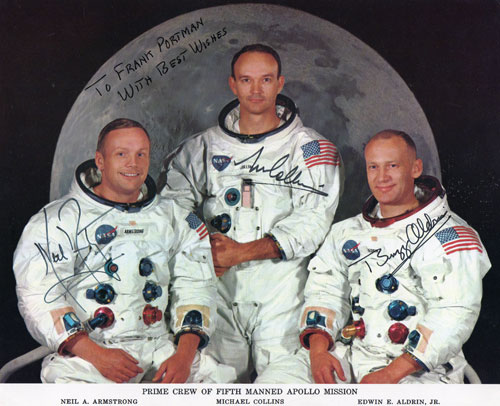
Another of my childhood autograph-collecting projects (cf. Groucho's and Ted's.)
I got the photo from NASA's free information pack and sent it to these guys one by one with a stamped envelope and what I imagine must have been a pretty funny letter about how much I liked space or something. It was Buzz Aldrin who wrote the "with best wishes" dedication. Still kind of amazed they all came through on this. Mm, space.
June 06, 2011
June 04, 2011
Decommissioned
After fourteen years or so, Patrick's Revenge is Sweet promotional flyswatter finally broke whilst being used to dispatch a fly:

Onanism: self-pollution

These materials were found in an old (ca. 1948) copy of A E Waite's translation of Eliphas Levi's History of Magic.
The previous owner had made a few slightly cantakerous notes in an almost preternaturally neat, careful hand upon Waite's preface and Levi's introduction, though no further in the text than that. Pictured is a cardstock bookmark with the beginnings of a self-penned glossary in the same hand, as well as a couple of mimeographed forms for applying for holiday leave from wherever this guy used to work.
I like to imagine that the eldritch horror of that introduction was too much for him and he had to break off from his annotating and take a rest cure to restore his sanity points. In fact, I think that's definitely what probably happened.
June 03, 2011
June 02, 2011
Fumeux Fume par Fumée
I know from experience that this sound can clear a room pretty quickly, so brace yourself before pressing play. I find it does mysterious, pleasantly uncomfortable things to my brain.
That recording of one of the most famous songs from the 14th Century Chantilly Codex can be found on this rather good "ars subtilior" compilation, though I prefer the approach taken by the Ensemble PAN on this amazing recording
-- if, like me, you're in it for the otherworldliness, they're your man.
Listening to this music has always put me in a strange, disoriented mood, but these days it mostly just sends me back into that Andromeda Klein state of mind. (Led Zeppelin does that too.)
And speaking of Ensemble PAN and Andromeda, her character took most of its shape under the influence of this recording. And Led Zeppelin.
The Way We Used to Look Like
[Photo deleted, viewable here.]
I don't know who took this photo way back when, but whoever it was managed to capture something or other.
